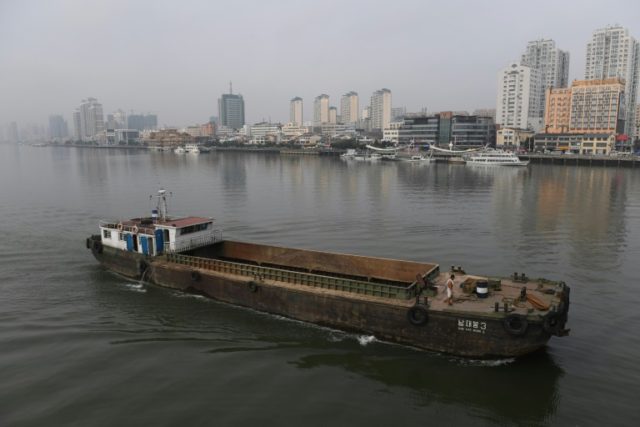The United States, Canada, and other nations invited to multilateral talks on North Korea’s nuclear crisis will discuss the potential of taking proactive actions against ships believed to be aiding trade between Pyongyang and foreign nations to enforce sanctions, the State Department confirmed on Thursday.
Speaking to reporters, Brian Hook, director of policy planning for Secretary of State Rex Tillerson, confirmed that multilateral talks in Vancouver, which Tillerson is scheduled to attend on Tuesday, will attempt to find new ways to put the pressure on the rogue communist state to abandon its illegal nuclear weapons program.
The Vancouver Foreign Ministers’ Meeting on Security and Stability is a joint U.S.-Canadian effort to which members of the United Nations Command Sending States coalition, which supported South Korea in the Korean War, are invited. China and Russia, North Korea’s two closest allies, will not attend the meeting.
“At Vancouver, we will be discussing maritime interdiction,” Hook confirmed. “We continue to explore all options to enhance maritime security and the ability to interdict maritime traffic, those transporting goods to and from the DPRK that support the nuclear and missile program.”
“And maritime interdiction helps us to disrupt resources, and then the financial side helps us to disrupt the financing of their nuclear and missile program,” he explained.
Hook also suggested that the coalition of states meeting in Vancouver will look at the possibility of banning ships known to transport cargo to and from North Korea from ports. “We need to drive up the consequences for any vessels that are engaging in this kind of activity,” he noted.
Hook also argued that the Trump administration’s campaign to create a unified front against North Korea has borne fruit:
Malaysia kicked out North Korean laborers. Qatar and Kuwait halted work visas to North Koreans. The UAE has completely severed diplomatic ties. Peru, Spain, and Italy have all expelled ambassadors. Portugal froze all diplomatic relations with the DPRK in July. As I think as I’ve mentioned in prior interactions with you, in every bilat the Secretary brings up North Korea, and he has done that since the time that we had reached agreement on a North Korea strategy in the national security cabinet. And we have seen a lot of this very patient and day-by-day diplomacy yield a lot of results.
“There is growing evidence that our maximum pressure campaign is being felt in North Korea,” Hook argued. “They are feeling the strain. And we believe that this pressure campaign remains the best avenue to force change in Kim Jong-un’s behavior and to get him to the negotiating table for meaningful discussions.”
The Canadian government, led by leftist Prime Minister Justin Trudeau, launched a campaign late last year to take the lead in diplomacy with North Korea. The result has been talks with Tillerson regarding what eventually came to be the Vancouver meeting. Trudeau has argued for expanding the pool of nations involved in efforts to denuclearize North Korea, and suggested the idea of inviting one of North Korea’s most loyal allies, the fellow rogue state of Cuba, to talks, as well.
Cuba is not invited to the Vancouver talks, but the list of nations that are have surprised many. The United Nations Command Sending States list includes Colombia, Belgium, Luxembourg, and Ethiopia, but not China or Russia. It is not clear whether every country on that list is invited to the talks.
The list has received criticism not just from opposing nations like China, but the Japanese foreign ministry. An unnamed ministry official told Bloomberg this week that “Japan had been given no details on who would attend, what would be discussed or how the event would be organized,” and noted that the nations on the list are not the ones “most affected” by the crisis.
Canada’s National Post suggests that China’s exclusion was the Trump administration’s doing. In December, Canadian officials told the Post that they “hope [China] will attend” and said “yes” when asked if China had been invited to the talks.
China’s Canadian embassy, quoting Foreign Ministry spokesman Lu Kang, told the newspaper, “China will not attend such a meeting” because it “reflects Cold War thinking.”

COMMENTS
Please let us know if you're having issues with commenting.